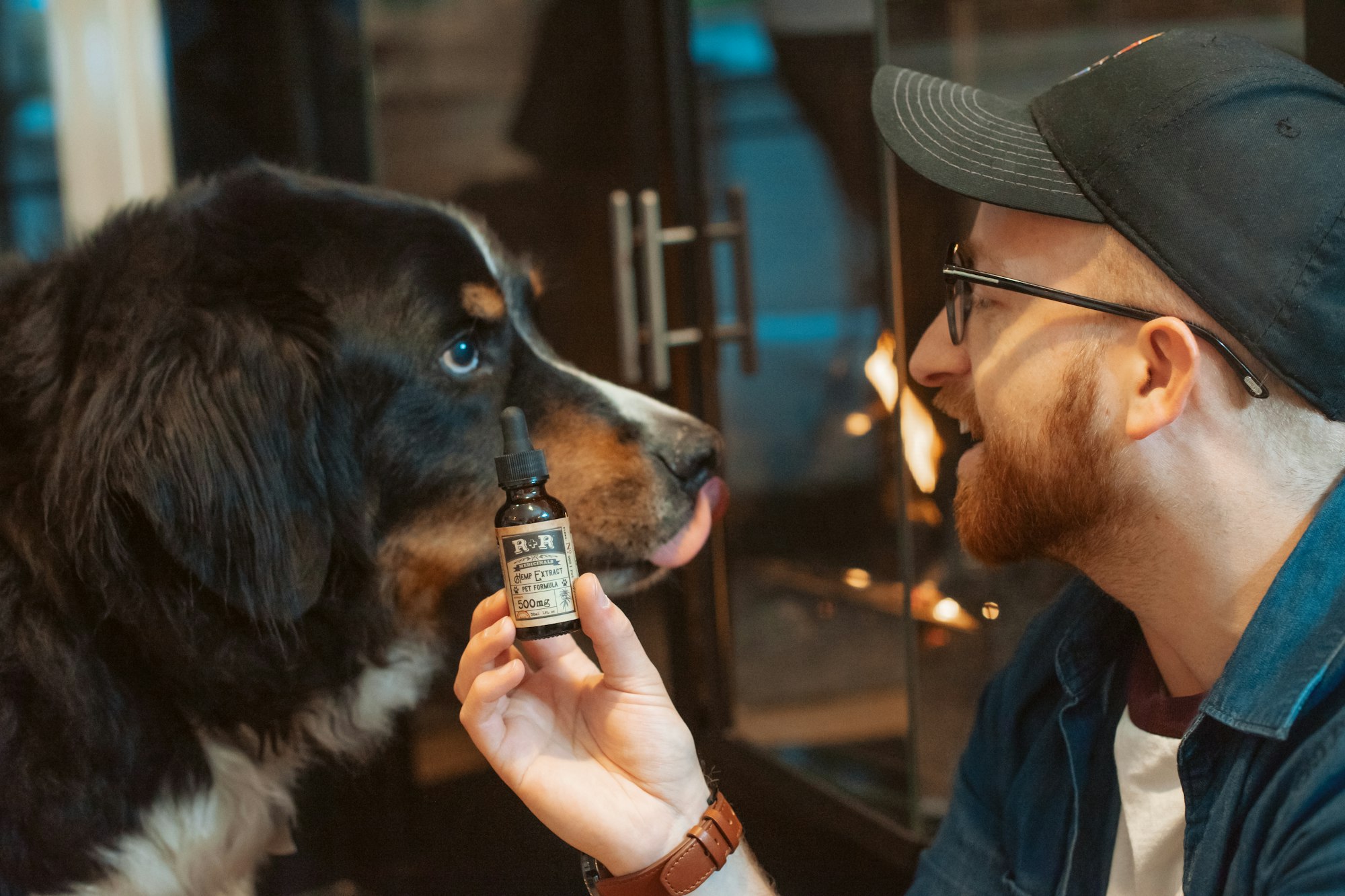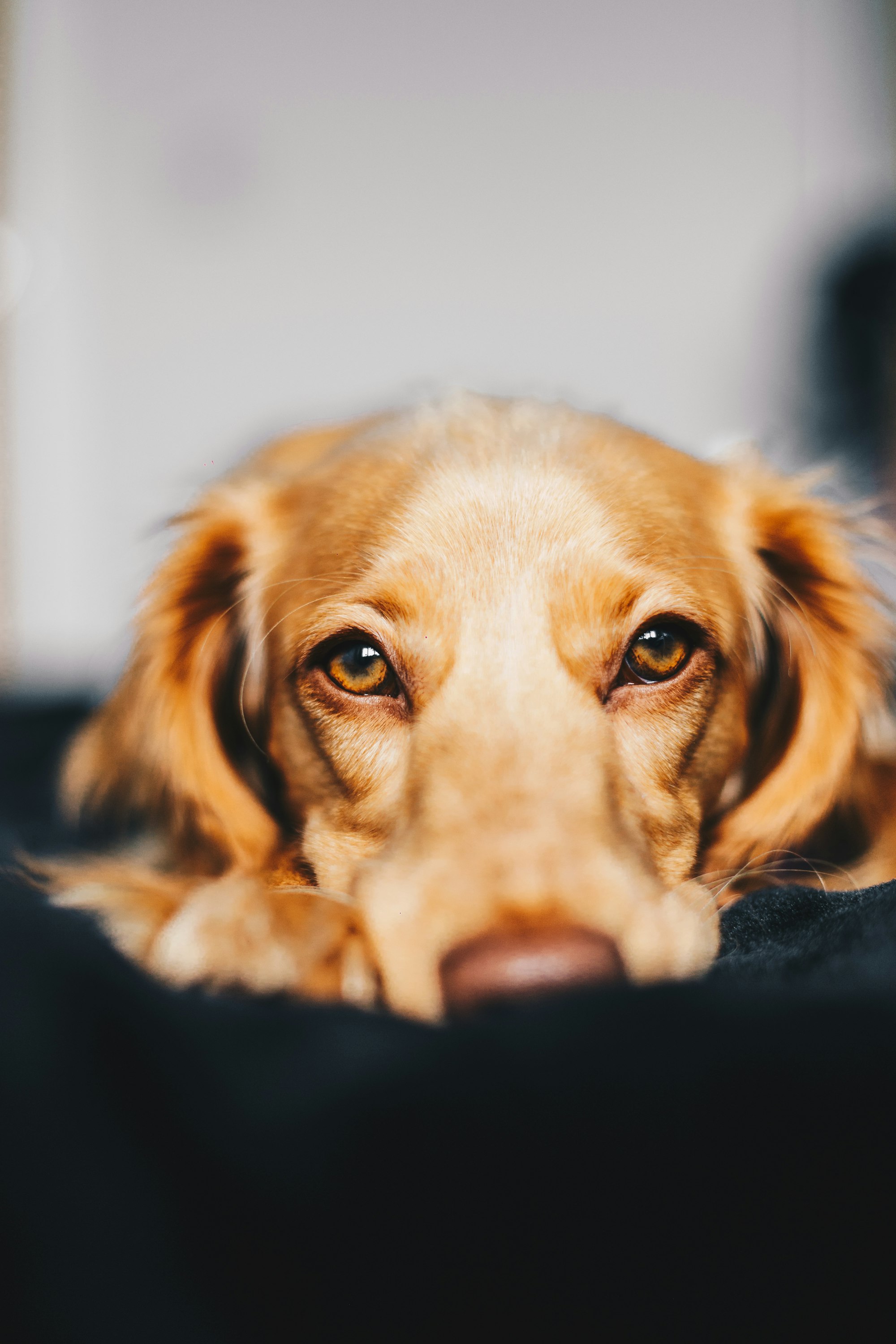Dogs, our faithful companions, can experience anxiety just like humans. Whether it's due to separation, loud noises, or social situations, anxiety can take a toll on their well-being. In this article, we'll explore the world of dog anxiety and the medications that can help alleviate their stress.

Types of Dog Anxiety
Dog anxiety is a complex and often misunderstood condition, encompassing various forms of distress that can affect our four-legged companions. Understanding these distinct types of anxiety is essential for providing the appropriate care and support. Here, we delve into the different manifestations of dog anxiety with authority and clarity.
Separation Anxiety
Separation anxiety ranks among the most prevalent and challenging forms of canine anxiety. When left alone, dogs with separation anxiety may exhibit destructive behavior, excessive barking, or house soiling. This distress stems from a deep emotional bond with their owners, and they struggle when separated, even for short periods.

Noise Anxiety
Noise anxiety can turn even the bravest of dogs into quivering bundles of nerves. Common triggers include thunderstorms, fireworks, or any loud, sudden noises. Dogs experiencing noise anxiety may tremble uncontrollably, excessively pant, or attempt to hide in a desperate bid to escape the terrifying sounds.
Social Anxiety
Much like humans, dogs can suffer from social anxiety, which can manifest in various ways. Some dogs may cower and become timid when confronted with unfamiliar people or other dogs, while others may respond with aggressive behavior. This form of anxiety often requires careful socialization and training to help dogs navigate social situations more confidently.
Travel Anxiety
Traveling with dogs can be a source of travel anxiety. Car rides or trips to the veterinarian can provoke significant unease. Symptoms may include restlessness, heavy panting, or even motion sickness. Dogs experiencing travel anxiety can find journeys distressing and uncomfortable.
By gaining insight into these distinct types of dog anxiety, we empower ourselves to recognize the signs and seek appropriate solutions. Understanding the specific challenges our canine companions face allows us to provide them with the care and support they need to lead happy, anxiety-free lives.
Identifying Symptoms of Dog Anxiety
To be effective caregivers for our beloved canine companions, we must become adept at recognizing the telltale signs of dog anxiety. Dogs often communicate their distress through their behavior and physical symptoms. In this authoritative guide, we will delve into the various indicators that can help us pinpoint anxiety in dogs.
Behavioral Signs
Behavioral signs are often the first and most noticeable indicators of dog anxiety. These manifestations can vary widely from one dog to another, but some common behavioral signs include:
- Excessive Whining or Barking: Dogs may vocalize their distress through incessant whining or excessive barking, especially when left alone.
- Pacing: An anxious dog may exhibit restless pacing, unable to settle down or relax.
- Destructive Behavior: Anxiety can lead to destructive acts like chewing furniture, scratching doors, or digging holes in the yard.
- Attempting to Escape: Some dogs will go to great lengths to escape confinement when they are anxious, potentially injuring themselves in the process.
- Changes in Appetite: Anxiety can affect a canine's appetite, causing them to either overeat or lose interest in dog food.
- Changes in Sleep Patterns: Dogs may experience disruptions in their sleep patterns, including insomnia or excessive sleeping.
These behavioral signs serve as valuable cues for identifying anxiety in your dog. Paying close attention to changes in their behavior can lead to timely intervention and support.
Physical Signs
In addition to behavioral cues, physical signs can also indicate anxiety in dogs. These symptoms often result from the physiological responses triggered by stress and anxiety, and they can include:
- Trembling or Shivering: Dogs may tremble or shiver involuntarily when they are anxious.
- Excessive Panting: Anxiety can cause rapid and heavy panting, even in cool conditions.
- Excessive Drooling: Some dogs may salivate excessively when experiencing anxiety.
- Vomiting or Diarrhea: Severe anxiety can lead to gastrointestinal upset, resulting in vomiting or diarrhea.
- Restlessness: An anxious dog may exhibit restlessness, frequently changing positions without finding comfort.
Recognizing these physical signs is crucial, as they can help you confirm the presence of anxiety in your dog. Combining an understanding of behavioral and physical symptoms equips you to provide timely care and support to alleviate your canine companion's distress.
By gaining expertise in identifying the symptoms of dog anxiety, you can take proactive steps to address your dog's emotional well-being and ensure a happier, more relaxed life for them.
When to Consider Medication
The decision to employ medication in the management of dog anxiety is a significant one and should not be taken lightly. It hinges on several key factors that demand careful consideration. In this authoritative discussion, we will explore when it is prudent to contemplate the use of medication as a means to alleviate your canine companion's anxiety.
Severity of Anxiety
The severity of your dog's anxiety is a primary determinant in the decision-making process. Consider the following questions:
- Is the Anxiety Disrupting Daily Life?: If your dog's anxiety interferes with their ability to function normally, it may be an indicator that medication is warranted. This includes excessive destructive behavior, incessant barking, or severe distress when left alone.
- Is the Anxiety Prolonged or Recurring?: Occasional anxiety during thunderstorms or fireworks is not uncommon and may not necessitate medication. However, if your dog's anxiety is frequent, consistent, or long-lasting, it may warrant intervention.
- Is the Anxiety Affecting Their Well-being?: If your dog's anxiety is causing them physical harm or severely impacting their quality of life, it's crucial to consider medication as an option.

Impact on Quality of Life
Assessing the impact of anxiety on your dog's quality of life is paramount. Look for signs that suggest their emotional and physical well-being is compromised:
- Withdrawal: An anxious dog may become increasingly withdrawn, avoiding social interactions and exhibiting signs of depression.
- Loss of Appetite: Anxiety can lead to changes in appetite, causing weight loss and malnutrition.
- Health Issues: Unmanaged anxiety can contribute to or exacerbate existing health problems, leading to a cascade of medical issues.
- Disrupted Sleep: Persistent anxiety can disrupt your dog's sleep patterns, leaving them fatigued and irritable.
When the cumulative impact of anxiety on your dog's well-being becomes apparent, it is a strong indicator that intervention, potentially in the form of medication, is warranted.
Consulting a Veterinarian
The decision to use medication for dog anxiety should not be made independently. Consulting a qualified veterinarian is of utmost importance. Veterinarians possess the expertise to properly diagnose your dog's condition, evaluate its severity, and formulate an effective treatment plan.
Your veterinarian will take into account your dog's overall health, any preexisting medical conditions, and the specific nature of their anxiety. They will recommend appropriate medications, discuss potential side effects, and guide you through the administration process.
In conclusion, the decision to consider medication for dog anxiety is a complex one that hinges on the severity of the condition and its impact on your furry companion's quality of life. It is a decision best made in consultation with a veterinarian who can provide expert guidance and ensure the well-being of your beloved dog.
Common Medications for Dog Anxiety
When it comes to addressing anxiety in dogs, there are various medications available, each designed to target specific aspects of anxiety disorders. In this authoritative discussion, we will explore the common medications used to alleviate anxiety in our canine companions, shedding light on their mechanisms and effectiveness.
Prescription Medications
Prescription medications are often employed when dealing with moderate to severe cases of dog anxiety. These medications require a veterinarian's guidance and should be administered according to their recommendations.
Benzodiazepines
Benzodiazepines, such as Diazepam and Alprazolam, are fast-acting drugs that can provide immediate relief from acute anxiety. They work by enhancing the effects of gamma-aminobutyric acid (GABA), a neurotransmitter that inhibits brain activity, leading to relaxation and reduced anxiety. However, they are typically prescribed for short-term use due to their potential for dependence.
Selective Serotonin Reuptake Inhibitors (SSRIs)
Selective Serotonin Reuptake Inhibitors (SSRIs), like Fluoxetine and Sertraline, are used for the long-term management of anxiety. SSRIs work by increasing the levels of serotonin in the brain, which can help stabilize mood and reduce anxiety. They are considered safer for extended use compared to benzodiazepines.
Tricyclic Antidepressants (TCAs)
Tricyclic Antidepressants (TCAs), including Clomipramine, can also be used to treat anxiety in dogs. They affect various neurotransmitters in the brain, such as serotonin and norepinephrine, helping to modulate mood and alleviate anxiety. TCAs are typically reserved for cases where other medications have proven ineffective.
Natural Remedies
For those who prefer a more holistic approach or wish to explore complementary options, several natural remedies can be effective in managing dog anxiety.
CBD Oil
CBD oil has gained popularity for its potential to reduce anxiety in dogs. It interacts with the endocannabinoid system, which plays a crucial role in regulating stress and anxiety responses. CBD oil can provide a calming effect without the psychoactive properties associated with THC.
Herbal Supplements
Herbal supplements such as valerian root and chamomile have been used for centuries to alleviate anxiety in both humans and dogs. These herbs contain compounds that promote relaxation and can help soothe anxious pets.
ThunderShirts and Anxiety Wraps
Pressure-based solutions like ThunderShirts and anxiety wraps apply gentle, constant pressure to a dog's body, providing a sense of security and comfort. These non-pharmacological options can be particularly effective during anxiety-inducing events like thunderstorms or fireworks.
The choice of medication or remedy for your dog's anxiety should be made in consultation with a veterinarian. They can properly diagnose your dog's condition, assess its severity, and recommend the most appropriate treatment. Whether you opt for prescription medications or natural remedies, the goal remains the same: to help your canine companion lead a happier and more anxiety-free life.

Prescription Medications
Benzodiazepines
Benzodiazepines like Diazepam can provide fast relief for acute anxiety. They work by calming the nervous system.
Selective Serotonin Reuptake Inhibitors (SSRIs)
SSRIs like Fluoxetine can be used for long-term anxiety management. They help increase serotonin levels in the brain.
Tricyclic Antidepressants (TCAs)
TCAs like Clomipramine can also help manage anxiety in dogs. They affect neurotransmitters in the brain.
Dosage and Administration
Follow your vet's instructions carefully when administering medication. Dosage and frequency can vary depending on the medication prescribed.
Possible Side Effects and Preventing Dog Anxiety
While medications can help, they may also have side effects. Monitor your dog closely and report any adverse reactions to your veterinarian.
Prevention is key when it comes to dog anxiety. Proper training, socialization, and creating a safe environment can reduce the risk of anxiety in your furry friend.

Success Stories
Many dog owners have seen remarkable improvements in their pets' anxiety levels with the right medication. Real-life experiences can offer hope and inspiration.
Conclusion
Dog anxiety can be distressing for both pets and their owners, but there are effective solutions available. Whether you opt for prescription medications or natural remedies, the goal is to help your dog lead a happier, anxiety-free life.
FAQs
- Q1: Is it safe to give my dog anxiety medication without consulting a vet?
- It's always best to consult a veterinarian before starting any medication for your dog's anxiety. They can assess your pet's specific needs and guide the safest and most effective treatment.
- Q2: How long does it take for dog anxiety medication to work?
- The time it takes for medication to show results can vary depending on the medication and your dog's response. Your veterinarian can provide a better estimate based on your dog's condition.
- Q3: Can natural remedies replace prescription medications?
- Natural remedies can be effective for mild cases of anxiety, but for severe anxiety, prescription medications may be necessary. Consult your vet to determine the best approach.
- Q4: Are there any home remedies for dog anxiety?
- Home remedies like providing a safe and comfortable space, using calming scents, or engaging in relaxing activities can complement anxiety treatment. However, consult your vet for a comprehensive plan.
- Q5: Can I use anxiety medication for my dog's fear of thunderstorms?
- Yes, anxiety medication can be used to manage your dog's fear of thunderstorms. Discuss this with your veterinarian, who can recommend an appropriate medication or treatment plan.
In this comprehensive guide, you've learned about different types of dog anxiety, how to identify its symptoms, when to consider medication, and the various prescription and natural remedies available. Remember to consult your veterinarian to determine the best course of action for your beloved canine companion. Ease their worries and help them lead a happier, anxiety-free life.




